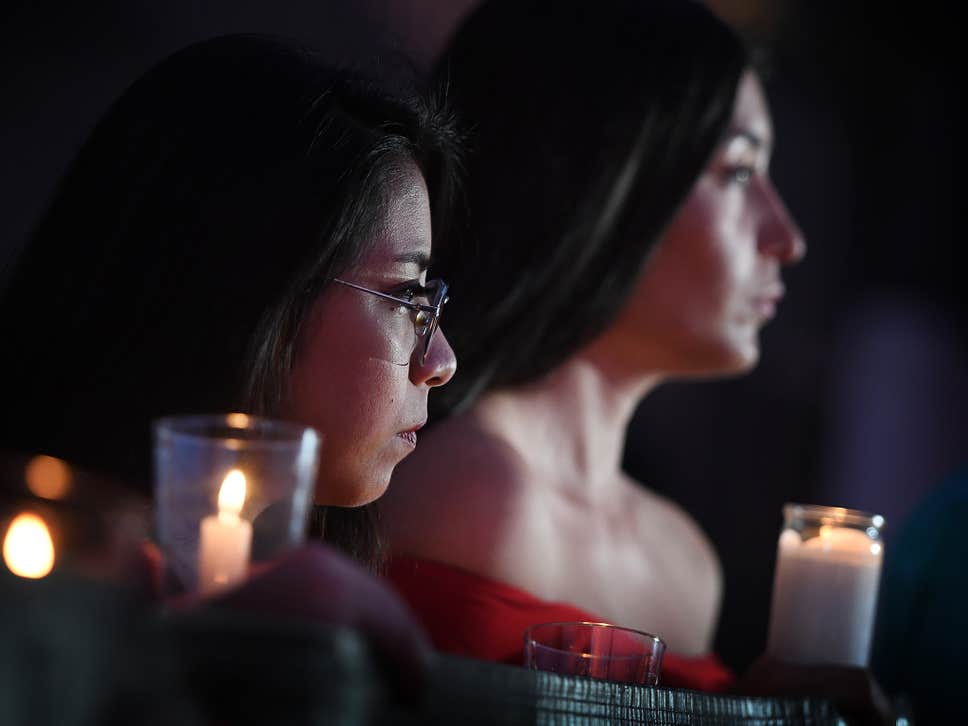Spain Big Brother contestant claims she was raped on camera – impact on #MeToo

A few minutes every morning is all you need.
Stay up to date on the world's Headlines and Human Stories. It's fun, it's factual, it's fluff-free.
A former contestant on Spain’s version of Big Brother, “Gran Hermano Revolution”, has accused the show of allowing her to be raped on camera by a fellow contestant while she was unconscious. She was then allegedly made to watch the filmed attack to provide a reaction – a video of which was released online on November 19 by the Spanish digital newspaper, El Confidencial.
The alleged sexual assault is said to have taken place during a recording of the 18th season of the show in November of 2017. The victim, Carlota Prado, had been partying with her castmates the night before the attack. Inebriated, Prado was helped to bed by another contestant, José María López. López attempted to initiate physical intimacy, but Prado rejected his advances. She then passed out on the bed and Lopez allegedly proceeded to have sex with her while she was unconscious.
While video footage of the attack was never aired and has not surfaced, El Confidencial obtained footage of Prado being made to watch the attack and react. In the video, Prado can be heard begging for the video play to be stopped. As a result of the controversy, the show has lost dozens of sponsors.
[article_ad]
Sexual assault in Spain
This story is making headlines in Spain in the wake of another controversial case involving sexual assault that has stirred up protest. Five men were accused of raping a 14-year-old girl in October 2016 after she had consumed alcohol and drugs. She fell into an unconscious state and the men subsequently took turns assaulting her. While the defendants denied the attack, DNA from one of the men was found on the girl’s underwear.
Ultimately, the five men were found guilty of sexual abuse, but not sexual assault. This was due to the Spanish law on sexual assault that dictates that the act is only deemed as rape if done “using violence or intimidation.” Since the girl was unconscious during the attack, she was unable to resist or refuse. The men received prison sentences of 10 to 12 years – as opposed to the 15 to 20 years they would have received for sexual assault.
Similarities to La Manada
For many in Spain, the assault – which took place in the northeastern Spanish region of Catalonia – bears a striking resemblance to another case of sexual assault that made national headlines. In that case, five men who called themselves “La Manada” (Spanish for “wolfpack”), raped a woman during the 2016 San Fermin festival in Pamplona.
Afterward, the men shared videos of the attack via their WhatsApp chat group. The videos, which went public, showed the woman with her eyes closed and not resisting. This footage was used to argue that she was “passive or neutral” during the attack. As a result, the five men were initially sentenced to nine years in prison for sexual abuse and released on €6,000 bail.
The sentence was met with protests throughout Spain and gained international notoriety, spurring some prominent celebrities to voice their displeasure with what was considered a lenient sentence. A few months after the initial verdict was given in the wolfpack case, Spain’s Supreme Court overruled the sentence and determined that the men had, in fact, committed rape. The prison sentences for all five men were increased to 15 years.
The rise of Vox
While the Supreme Court’s decision has been celebrated by some in the country, it comes at a time when feminism and women’s issues are under heightened attack by the nation’s far-right political movement. This movement is embodied in a relatively new political party, Vox (Latin for “voice”).
The party, which only won its first elections in 2018, has been surging on a “Spain first” anti-immigrant manifesto that resembles the tone of conservative movements in other countries, including the “America First” policy of U.S. President Donald Trump. Vox has also taken a strong stance against women’s issues, underplaying the statistics on domestic abuse in Spain and blocking an all-party declaration condemning violence against women after winning the third-largest portion of Spain’s parliament in November elections.
#MeToo in the Spanish-speaking world
Since Spain began keeping records on domestic violence in 2003, there have been incidents of over 1,000 women murdered by their partners – and more than 50 in 2019 alone. In 2018, Spain’s Minister of the Presidency, Relations with the Cortes and Equality, Carmen Calvo Poyato, has vowed to reform Spain’s sexual assault laws to consider sexual assault any act that does not receive explicit consent.
Throughout the Spanish-speaking world, sexual assault and harassment have become major topics as the #MeToo movement spreads. In Chile, an anti-rape protest song and dance has become a viral anthem that has spread across the world, with performances of the anthem occurring throughout Latin America, Spain and other countries throughout Europe.
[article_ad]




Comments ()